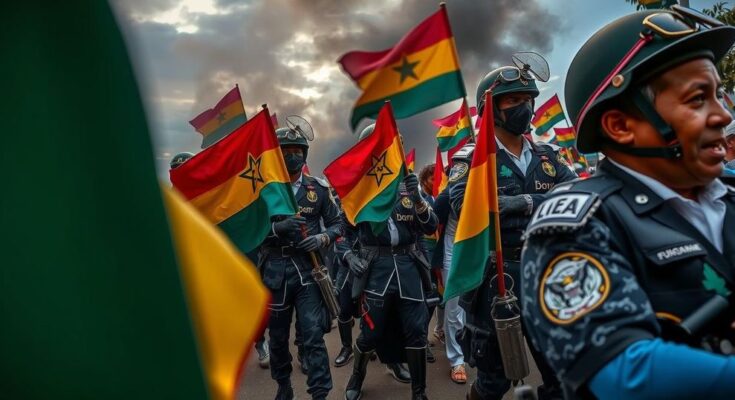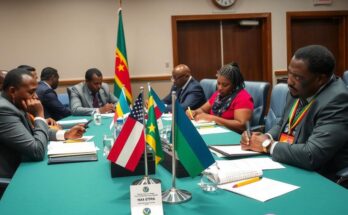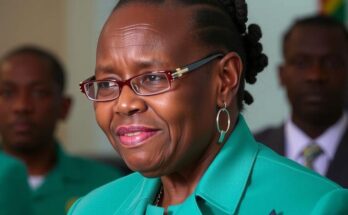The government of Mozambique has banned protests following a disputed presidential election that has triggered violent unrest, leading to numerous deaths and injuries. The ruling Frelimo party’s claims of having won the election have faced accusations of fraud, while authorities have labeled the protests as “acts of terrorism.” Internet access has been restricted in an effort to suppress dissent, raising concerns about civil liberties in the nation.
In response to weeks of unrest following last month’s disputed presidential election, the government of Mozambique has implemented a ban on protests. The elections, in which the ruling Frelimo party claimed victory with 71% of the vote, have been marred by allegations of unfair practices and subsequent violence. As protests erupted in the capital, Maputo, the situation escalated, leaving at least 18 fatalities and numerous injuries, prompting authorities to label these gatherings as “acts of terrorism.” The Interior Minister, Pascoal Ronda, urged the populace to comply with government directives to restore order, characterizing ongoing protests as severe threats to public safety. Clashes between police and thousands of demonstrators turned violent, leading to the deployment of soldiers to manage the situation. Furthermore, the government has restricted Internet access nationwide, which several human rights organizations regard as an effort to stifle dissent and suppress criticism of the regime. Opposition leaders, including Venâncio Mondlane, have stated their intention to challenge the election results but face intimidation, with reports of violence against their supporters. As the government dismisses claims of electoral misconduct, the socio-political landscape of Mozambique remains tense, with civil liberties hanging in the balance.
Mozambique, a nation that has been governed by the Frelimo party since its independence in 1975, recently conducted a presidential election that has sparked significant controversy. The disputed election led to widespread protests, characterized by violent confrontations between demonstrators and law enforcement. As the political atmosphere intensifies, the ruling government has resorted to measures aimed at quelling dissent, including prohibitions on public demonstrations and internet restrictions, highlighting concerns regarding civil rights and democratic processes in the country.
In summary, the situation in Mozambique underscores a critical juncture in its democratic journey, as the government’s response to post-election protests raises serious questions about freedom of expression and the rights of citizens to peacefully assemble. With allegations of electoral malpractice and accusations of state suppression, the stability and integrity of Mozambique’s governance structure hang precariously, calling for international attention and advocacy for human rights.
Original Source: www.bbc.com




